GENEVA (10 July 2018) – The UN Special Rapporteur on the situation of human rights in the Democratic People’s Republic of Korea (DPRK), Tomás Ojea Quintana, has urged North Korea to open a parallel track for dialogue on human rights alongside peace and denuclearisation.
Following an eight-day visit to Seoul, Ojea Quintana said the worsening humanitarian crisis in the North underlined the importance of putting the lives of all North Koreans’ on the agenda, expressing concerns that human rights terminology had failed to appear in documents following talks between the two Koreas and the US-DPRK summit.
“As recently as just several months ago, the world was fearing a prospect of a nuclear war,” he said, adding: “While still in its infancy, the world is now witnessing a peace process that may bring real results. I commend both governments of the two Koreas for their resolve - that there will be no more war and that there will be a new era of peace.
“To date, the Government of North Korea has refused to engage with me. However I am now calling for them to start a process of dialogue, to begin a conversation with me as a concrete sign of their commitment, which will only serve to reinforce the ongoing process,” said the Special Rapporteur.
Emphasising that the call is to end the era of isolation, and to fully engage with the international human rights mechanisms as a credible member of the United Nations, the UN expert added: “the United Nations is firmly against any politicisation of human rights”.
“This is not the first time that human rights is seen as an inconvenience at a delicate moment. However, our experience as the UN has shown that there can be no genuine, peaceful and sustainable transition without it.”
The UN has reported that chronic food insecurity, early childhood malnutrition and nutrition insecurity are widespread in DPRK, and over 10 million people, or 40 percent of the population, are said to require humanitarian assistance. The total food production in the country has seen a decrease by 7.42 percent in 2018 compared to last year.
“Difficulties in the living conditions and the chronic food insecurity continue to be cited as the reason that people leave, particularly those from the countryside, which make up the majority of the population,” Ojea Quintana said.
The Special Rapporteur cited the testimony of one young girl, who told him: “We were taught that everything is equal and fair under the social system, but when I lived there (in the North), it didn’t feel that way.” Asked why, she said: “Life was so difficult for everyone. Everyone lived for their own good, for themselves, and couldn’t care about anyone else”.
“While the difficulties that the recent arrivals from the DPRK alluded to were mostly economic and social, they all displayed a fear of expressing any opinion that could be considered as political, or a criticism of the Government or the leader,” the Special Rapporteur said. “Although none of them had a first-hand experience of detention, they all cited knowing someone or some family who were reportedly sent to political prison camps (kwanliso), and there is widespread fear of being sent to them.”
During the visit, Ojea Quintana met senior members of the Government of the Republic of Korea, members of the diplomatic community, representatives of civil society organisations, the Korean Red Cross and the National Human Rights Commission of Korea, as well people who have recently left the DPRK.
ENDS
Mr. Tomás OJEA QUINTANA (Argentina) was designated as the Special Rapporteur on the situation of human rights in the DPRK by the UN Human Rights Council in 2016. Mr. Ojea Quintana, a lawyer with more than 20 years of experience in human rights, worked for the Inter-American Commission of Human Rights, and represented the Argentinian NGO “Abuelas de Plaza de Mayo” in cases concerning child abduction during the military regime. He is a former Head of OHCHR human rights programme in Bolivia, and served as the UN Special Rapporteur on the situation of human rights in Myanmar from 2008 to 2014.
The Special Rapporteurs are part of what is known as the Special Procedures of the Human Rights Council. Special Procedures, the largest body of independent experts in the UN Human Rights system, is the general name of the Council’s independent fact-finding and monitoring mechanisms that address either specific country situations or thematic issues in all parts of the world. Special Procedures’ experts work on a voluntary basis; they are not UN staff and do not receive a salary for their work. They are independent from any government or organization and serve in their individual capacity.
UN Human Rights, country page: DPRK
OHCHR Seoul Office
For additional information and media requests, please contact in English, Olga Nakajo (+41 22 928 9348 after the visit; and +41 79 444 3702 during the visit/ onakajo@ohchr.org) or in Korean, Yumi Song (+82 2 725 3524 / ysong@ohchr.org)
For media inquiries related to other UN independent experts:
Jeremy Laurence, UN Human Rights – Media Unit (+ 41 22 917 9383 / jlaurence@ohchr.org)
This year is the 70th anniversary of the Universal Declaration of Human Rights, adopted by the UN on 10 December 1948. The Universal Declaration – translated into a world record 500 languages – is rooted in the principle that “all human beings are born free and equal in dignity and rights.” It remains relevant to everyone, every day. In honour of the 70th anniversary of this extraordinarily influential document, and to prevent its vital principles from being eroded, we are urging people everywhere to Stand Up for Human Rights: www.standup4humanrights.org
